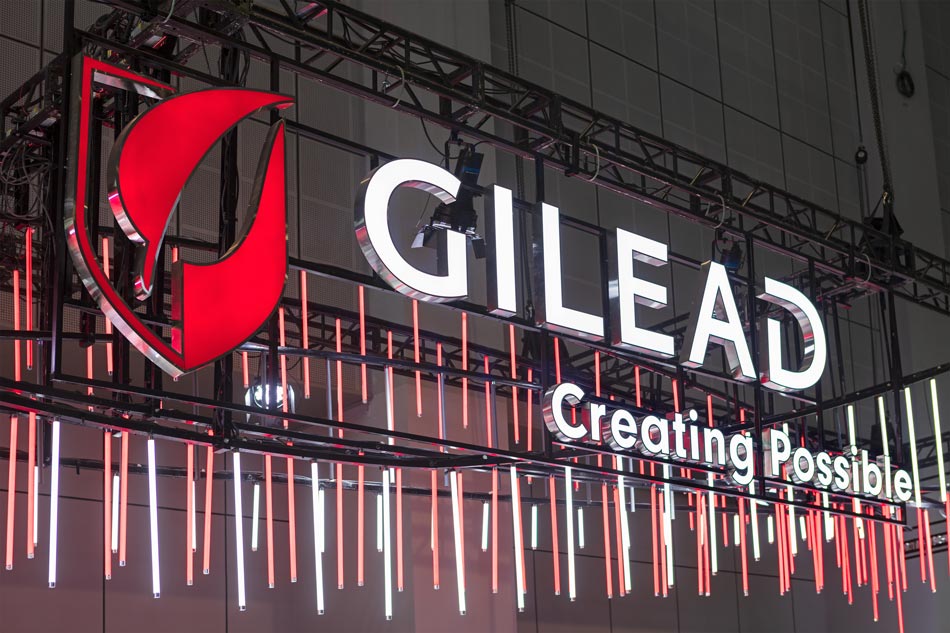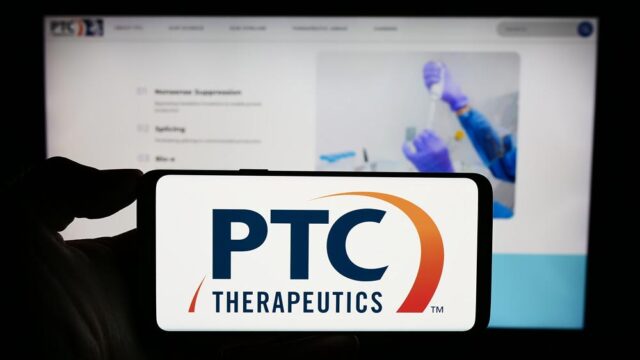Advertisment
Gilead Sciences to Showcase New Findings on HIV, COVID-19, and Viral Hepatitis at IDWeek 2024, Highlighting Advances in Antiviral Research

Gilead Sciences, Inc. announced the upcoming presentation of new findings from its antiviral research and development programs at IDWeek 2024, taking place from October 16-19. The data from 31 presentations across HIV treatment and prevention, COVID-19 and viral hepatitis include one late breaker abstract and six oral presentations, reflecting Gilead’s commitment to helping address the evolving needs of a diverse range of people and communities affected by some of the world’s most challenging viruses.
“We look forward to sharing new research that highlights the breadth of our antiviral portfolio and expanding pipeline as we strive to treat, prevent, cure and help eradicate viral diseases worldwide,” said Jared Baeten, MD, PhD, Senior Vice President, Virology Therapeutic Area Head at Gilead Sciences. “The data reflect our unwavering commitment to advance scientific innovations in virology, aimed at addressing urgent global needs.”
HIV Research
Continuous scientific discovery in HIV is a pillar of Gilead’s commitment to help end the HIV epidemic. Presented studies’ results and analyses will include further evaluation of Biktarvy (bictegravir 50 mg/emtricitabine 200 mg/tenofovir alafenamide 25 mg tablets, B/F/TAF) as a long-term treatment option for a broad range of people with HIV (PWH). Outcomes from pipeline research studies will also provide insights into investigational treatment candidates, including new data on GS-1720, a novel once-weekly integrase strand transfer inhibitor (INSTI), and a late-breaker oral presentation of Week 48 data from the Phase 2 study evaluating an investigational once-weekly oral combination regimen of islatravir and lenacapavir will also be presented.
Gilead will present an overview of results from its pivotal Phase 3 PURPOSE 1 (NCT04994509) and PURPOSE 2 (NCT04925752) trials, which studied the efficacy and safety of lenacapavir, the company’s injectable HIV-1 capsid inhibitor, for the investigational use of HIV prevention in a broad, diverse range of people globally. The trials were unblinded in June and September, respectively.
Additionally, Gilead will present five-year outcomes in new subgroup analyses from Studies 1489 (NCT02607930) and 1490 (NCT02607956), which assessed the safety and efficacy of Biktarvy compared to Triumeq (ABC/DTG/3TC) and dolutegravir 50 mg (DTG) + emtricitabine 200 mg/tenofovir disoproxil fumarate 300 mg, DTG+F/TDF. The first analysis evaluated the safety and efficacy of Biktarvy in treatment naïve PWH aged 50 or older, providing data to inform treatment decisions in this increasing proportion of PWH with a greater burden of age-related comorbidities. The second analysis evaluated the safety and efficacy of Biktarvy in treatment-naïve Black adults, a population that has historically been underrepresented in clinical studies despite the disproportionate impact of HIV on Black communities.
Gilead will also present three-year outcomes from the CAPELLA study (NCT04150068), which evaluated twice-yearly subcutaneous dosing of Sunlenca (lenacapavir) in combination with an optimized background regimen in people with multi-drug resistant HIV.
HIV prevention data will include an analysis of newly initiated pre-exposure prophylaxis (PrEP) use in priority populations with unmet needs for PrEP in the U.S.
Additional HIV research findings include a presentation of survey data reporting current real-world trends for PWH with ART resistance mutations and utilization of healthcare resources in addition to the impact on efficacy, safety and clinical outcomes.
COVID-19 Research
Across Gilead’s 14 presentations in COVID-19, key data will highlight the dynamic nature of the SARS-CoV-2 virus and address the needs of those most susceptible to severe outcomes from COVID-19. A real-world evidence analysis will feature outcomes following treatment with Veklury ® (remdesivir, 100mg for injection), for people hospitalized with COVID-19 who have leukemia, lymphoma and multiple myeloma. Additionally, a presentation of in vitro data will demonstrate the ongoing antiviral activity of Veklury against recent Omicron subvariants.
An oral presentation will discuss how investigational obeldesivir reduced SARS-CoV-2 infectious viral titers in people with COVID-19. Gilead will also present full data results from the obeldesivir BIRCH (NCT05603143) and OAKTREE (NCT05715528) clinical trials. Previously, Gilead announced the early termination of the BIRCH trial due to lower-than-expected COVID-19 incidence rates and related hospitalizations or all-cause death by Day 29, which were primary endpoints in the study. The decision did not reflect any safety or efficacy concerns. Gilead also previously announced top-line results from the OAKTREE trial which found that while the study did not meet its primary endpoint in people without risk factors, obeldesivir was found to have a generally well tolerated safety profile. The detailed data add to the breadth of safety data on obeldesivir.
Based on results from BIRCH and OAKTREE, as well as results from preclinical studies in Respiratory Syncytial Virus (RSV), Gilead has launched a Phase 2 trial to study obeldesivir as a potential treatment for non-hospitalized adults with acute RSV. The study will evaluate if obeldesivir can help participants’ symptoms improve faster.
Overview of Scientific Presentations
| HIV Treatment Research | |
| Late Breaker | Week 48 Results of a Phase 2 Study Evaluating Once-weekly Oral Islatravir Plus Lenacapavir |
| Oral Presentation
Abstract 155 |
Long-Acting Subcutaneous Lenacapavir in People With Multi-Drug Resistant HIV-1: 3-Year Results of the CAPELLA Study |
| Oral Presentation
Abstract 154 |
Pharmacokinetics and Safety of GS-1720 Following Multiple Ascending Doses in a Phase 1a Study in People Without HIV-1 |
| P-547 | Efficacy and Safety of B/F/TAF in Treatment-Naïve People With HIV Aged ≥ 50 Years: 5-Year Follow-Up from Two Phase 3 Studies |
| P-550 | Efficacy and Safety of B/F/TAF in Black Adults With HIV who are Treatment Naïve: 5-Year Follow-Up from Two Phase 3 Studies |
| P-474 | Effects of Antiretroviral Resistance on Outcomes and Healthcare Resource Use of People With HIV in the United States and Europe – A Real-world Survey |
| P-590 | Impact of Pharmacoenhancers on the Pharmacokinetics and Safety of Lenacapavir in People With HIV |
| P-473 | Health Care Resource Use Burden Among People with HIV (PWH) and Concurrent Mental Health Disorders (MHDs): Claims Analysis of Treatment-Naïve Medicaid Population Initiating Multi-Tablet Regimens (MTRs) vs. Single-Table Regimens (STRs) |
| P-529 | Comparison of Renal Outcomes by Tenofovir Alafenamide Fumarate (TAF) vs. Tenofovir Disoproxil Fumarate (TDF) Containing Regimens for Prevention, and Treatment of HIV and/or HBV Treatment: A Systematic Literature Review and Meta-Analysis |
| HIV Prevention Research | |
| Oral Presentation Abstract 507 | Trajectories of Newly Initiated Pre-Exposure Prophylaxis (PrEP) Use Among Priority Populations With Unmet Needs for PrEP in the USA |
| P-512 | Changes in Renal Function After Switching from Emtricitabine/Tenofovir Disoproxil Fumarate to Emtricitabine/Tenofovir Alafenamide Fumarate for HIV Pre Exposure Prophylaxis (PrEP): A Real-World Study |
| COVID-19 Research | |
| Oral Presentation
Abstract 92 |
Obeldesivir Reduced SARS-CoV-2 Infectious Titers in the BIRCH Phase 3 Clinical Trial (GS-US-611-6273) |
| P-2036 | The OAKTREE Study: Obeldesivir for Treatment of COVID-19 in Adults and Adolescents Without Risk Factors for Progression to Severe Disease |
| P-2026 | The BIRCH Study: Obeldesivir for the Treatment of COVID-19 in People With Comorbid Risk Factors for Progression to Severe Disease |
| P-2030 | Remdesivir and Obeldesivir Retain Potent Activity Against SARS-CoV-2 Omicron Variants |
| P-1925 | Incidence of Long COVID Symptoms During the Year Post Admission Among Patients Hospitalized for COVID-19 |
| P-1939 | Health Status and Symptom Perceptions Among Patients Diagnosed with Long COVID in the United States: An Online Survey Study |
| P-1938 | Impact of Race and Ethnicity on Patient Perspectives of Health and Symptoms Following COVID-19 Diagnosis |
| P-2033 | Patient Characteristics and Management of COVID-19 Diagnosed in the Outpatient Setting |
| P-2020 | Combination Therapy with Remdesivir and Corticosteroids is Associated With Lower Mortality Risk vs. Corticosteroids Monotherapy in Patients Hospitalised for COVID-19 |
| P-1913 | Characteristics, Clinical Management, and Outcomes of Leukemia, Lymphoma and Multiple Myeloma Patients Hospitalized With a Primary Diagnosis of COVID-19: Insights from Hospitals Across the United States |
| P-1973 | Characteristics, Clinical Management, and Outcomes of Immunocompromised Patients Diagnosed with COVID-19 in the Outpatient Setting in France |
| P-2021 | How Have COVID-19 Treatment Guidelines and the Scientific Evidence Evolved Throughout the Pandemic and Endemic Era? |
| P-2031 | Thorough QT/QTc Clinical Study to Evaluate the Effect of Remdesivir on Cardiac Repolarization in Healthy Male and Female Participants |
| P-2025 | Resistance Analyses from the Remdesivir Phase 2/3 Caravan Study in Pediatric and Neonatal Participants with COVID-19 |
| Viral Hepatitis Research | |
| Oral Presentation Abstract 83 | Predictors of Undetectable HDV RNA 48 Weeks After Completion of Finite Treatment With Bulevirtide and Pegylated-Interferon Alpha 2a |
| P-2191 | Efficacy and Safety of Bulevirtide Monotherapy for Chronic Hepatitis D in Patients With and Without Cirrhosis: Results from the Week 144 Interim Analysis of a Phase 3 Randomized Study |
| P-2185 | Community Health Worker-led Intervention to Increase Hepatitis Delta Virus Screening Among Immigrants in the Metropolitan-DC Area |
| P-2180 | Linkage to Care, Treatment Initiation, and Outcomes in Individuals with Hepatitis B Virus Infection With and Without Cirrhosis |
| P-2322 | Screening Rates and Clinical Outcomes for Hepatitis Delta in Individuals with HBV Coinfection |
| P-2188 | Hepatitis C Screening: Before and After Study of Hepatitis C Risk Score Alerts in CHORUS |
For more information about Gilead at IDWeek 2024, including a complete list of abstracts and their corresponding oral and poster sessions, please visit https://idweek.org/program/.





